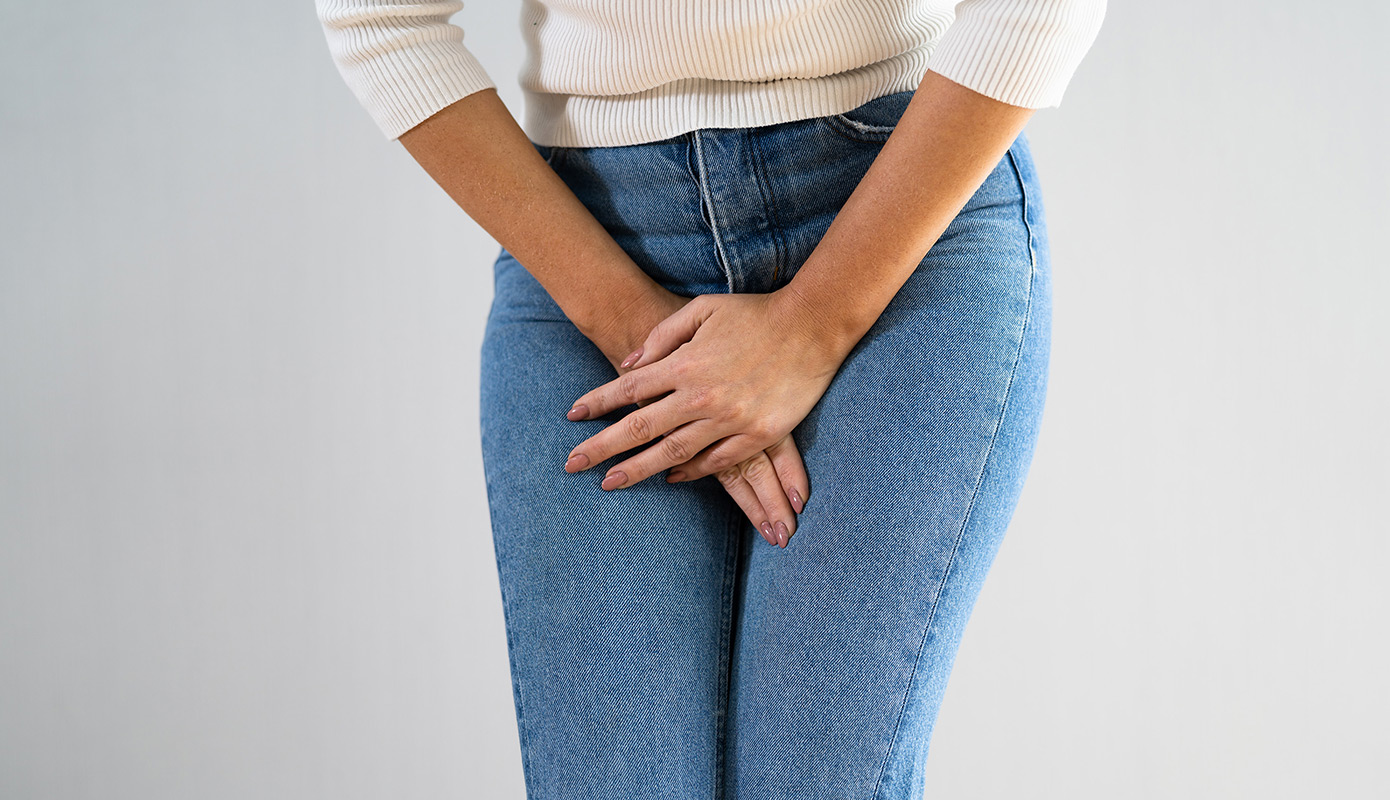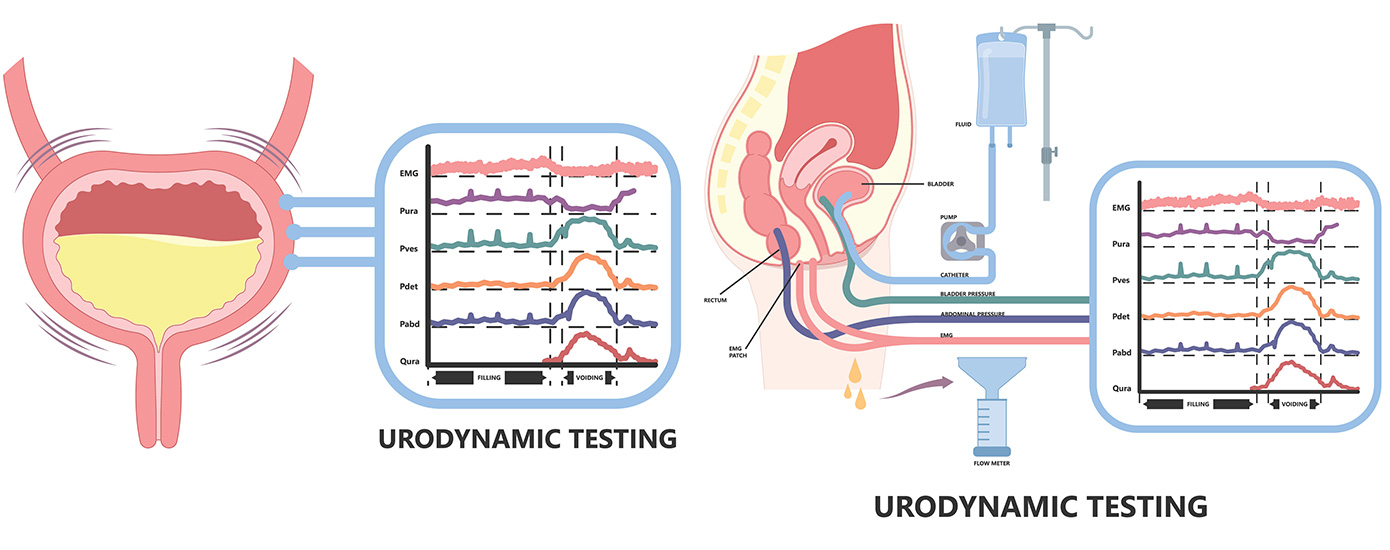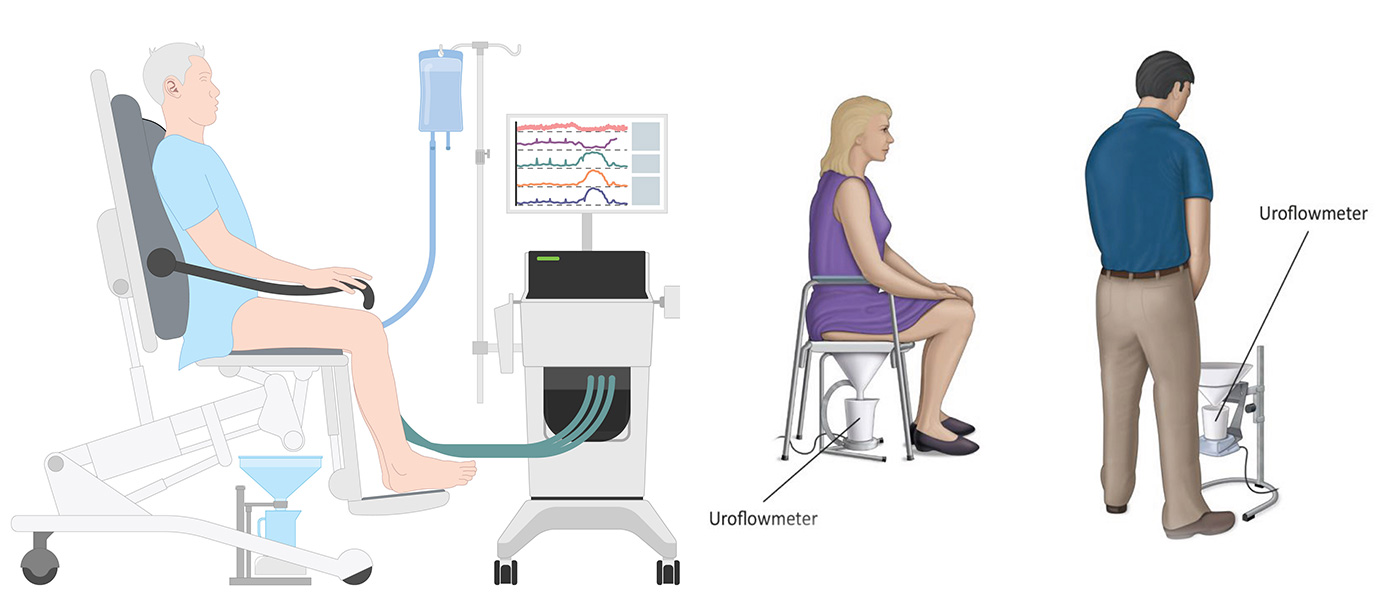What is a urodynamics test, and when should you have one?
At some point in your life, you may experience bladder problems that require a urodynamics test. Many of us will suffer from conditions such as incontinence, an urgent need to urinate and pain in the bladder, which can be caused by many things and may require further medical investigation. If you’re having bladder issues, then a urodynamics test can help your doctor work out what’s wrong with your urinary system.
How does the urinary system work?
Before we discuss urodynamic tests, you need a clearer understanding of how the urinary system functions. The main organs involved are the bladder and kidneys, which work together to make, store and pass urine. Urine moves from the kidneys into the bladder, which is shaped like a balloon and slowly fills up until you need to urinate.
When it’s not full, the bladder is relaxed, then when it reaches a certain level of fullness, nerve signals tell your brain that it’s time to urinate. The bladder responds by contracting and urine passes down through your urethra and out. The muscles supporting the urethra are known as sphincters, and these act to keep the urethra closed when you’re not urinating. Therefore, there are several stages at which things can go wrong.
What is a urodynamics test?
To put things simply, ‘urodynamics’ can be broken down into two parts. ‘Uro’ refers to the urine and ‘dynamics’ to continuous activity, so put together, we’re looking at a continuing test to see how well the system is working as a whole.
Urodynamic tests or urodynamic studies (UDS) help pinpoint where a problem lies when you notice your bladder is not working efficiently. They’re suitable for both men and women, as well as children, and cause minimal disruption to your daily life. They usually take between 30 minutes and an hour, with no need for fasting beforehand and no need for anaesthesia during the test. While some people may experience discomfort, the procedure(s) are almost entirely pain-free, and you’ll be able to carry on as normal afterward.
There are many different parts to a urodynamic test, but they’re all straightforward and nothing to worry about, so it’s worth consulting a urologist if:
- You’re suffering from incontinence (leaking urine that you can’t control, however small the amount)
- Leakage when you cough, sneeze, or jump, known as stress incontinence
- Not completely emptying your bladder
- Needing to use the bathroom more often than usual
- Feeling you need to use the bathroom urgently for fear of leaking
- A weak urine flow
- An intermittent flow of urine – in other words, stopping and starting
- Pain in the bladder or bladder spasms
- If treatment for incontinence has failed, including medication and pelvic floor muscle exercises
- If you suffer from neurogenic bladder dysfunction caused by a spinal injury or pelvic surgery
- You have a pelvic floor dysfunction, including prolapse
- You get repeated urinary tract infections (UTIs)
After an initial examination, your physician may arrange for a urodynamics test to look more closely at what’s causing your problems. You probably won’t need to do much to prepare for such an examination, although some patients may need to stop certain medications or drink a little differently on the day. Your doctor will let you know in advance, but otherwise, you can carry on as normal.
How does the procedure work?
Your doctor will probably want to carry out one or more of the following tests, depending on the nature of your condition:
- Pressure flow study – for this, you will be asked to pass urine while a catheter has been inserted to measure bladder pressure and urine flow rate. This can help diagnose the cause of a weakened urine stream, due to an obstruction, weak bladder contractions, neurogenic bladder or urinary sphincter dysfunction.
- Cytometry tests (CMT) – this involves filling the bladder with a sterile fluid using a catheter, at the same time as measuring how bladder pressure changes. This helps assess bladder capacity, compliance, and the presence of any abnormal contractions. It can also help detect an under- or over-active bladder and urine leakage when you cough, known as stress incontinence.
- Uroflowmetry – this measures how much urine you’re making and how strong your urine stream is. You may be asked to arrive with a full bladder, so the doctor can see if you’re having a hard time emptying it completely. This might mean you have a bladder outlet obstruction (BOO) which needs clearing, or a benign prostatic hyperplasia (BPH) in men.
- Cystometrogram (CMG) – this gives a better picture of how much urine your bladder can hold and its overall elasticity. You will have a small catheter inserted to measure bladder pressure as it fills, to see how well your bladder can store urine without leaking.
These tests are very routine and will usually cause only mild discomfort. Your doctor will set out which examinations they would like to run beforehand and discuss your options with you.
These tests provide your doctors with valuable information regarding the function or dysfunction of your bladder. With an accurate diagnosis, they will be better placed to implement the best treatment plan and vastly improve your quality of life.
When should you book a urodynamics test?
If you’re having any problems with your bladder, it’s worth booking an examination with a medical professional. Those symptoms may include incontinence, bladder discomfort, problems emptying your bladder or pain while urinating.
At Dubai London Hospital Group, we have specialist urologists who are experts in diagnosing bladder problems. Our urology department is rated one of the best in the region and is equipped with all the latest medical technology to help our experienced practitioners deliver the very best treatment for all forms of bladder problems.
If you would like to find out more about the services we provide, simply get in touch with our team today.






